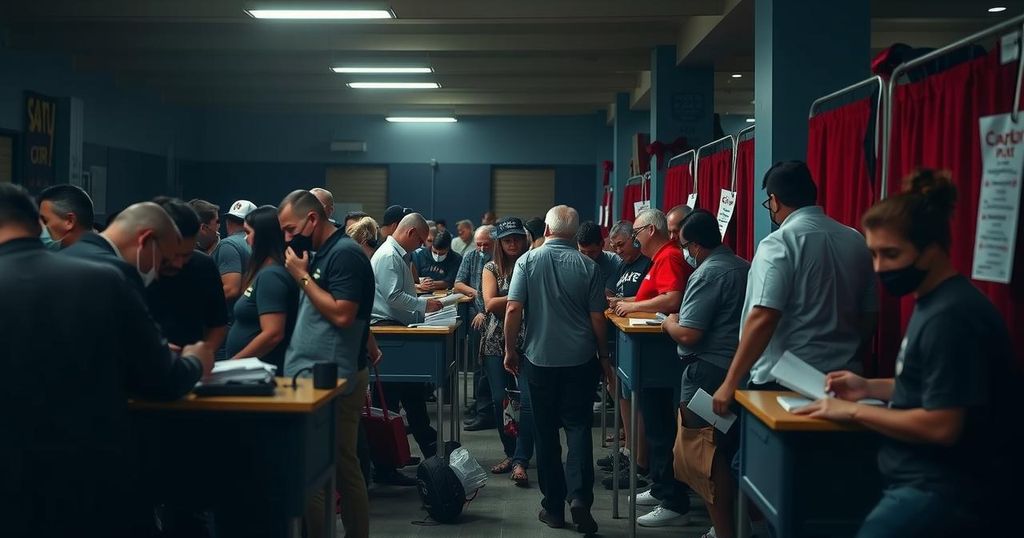Uruguay Prepares for Tight Presidential Election between Orsi and Delgado

Uruguay’s presidential runoff election features opposition candidate Yamandu Orsi against conservative Alvaro Delgado. Polls indicate a close race, with a mere 25,000 votes possibly separating the candidates. The election will assess voter sentiment following economic pressures without significant political upheaval. Both candidates aim to capture undecided votes ahead of the November 24 election, which will conclude a significant electoral year in South America.
Montevideo is poised for a closely contested presidential election as voters in Uruguay prepare to make their choice between opposition candidate Yamandu Orsi, representing the center-left, and conservative Alvaro Delgado. The runoff follows a significant October election where Orsi garnered 43.9% of the vote for the Broad Front, while Delgado received 26.8% but is supported by the conservative Colorado Party, allowing both parties to claim almost 42% of the support. Polls indicate a tight race with under 25,000 votes possible between the candidates, contrasting the stark political divisions seen in neighboring countries such as Argentina and Brazil.
The election, taking place amidst a focus on economic stability in Uruguay, will conclude a year of substantial political activity across South America. Both Orsi and Delgado are vying for the slight undecided voter demographic, estimated at about 8%, who previously supported smaller parties or did not participate in the first round. The voting process is set to commence at 8 a.m. local time, with the initial results anticipated shortly after closing at 7:30 p.m. Voters are reflecting on the performance of the current government under President Lacalle Pou, who cannot run again due to constitutional limits.
Despite the government facing challenges, including inflation, there is speculation that the economic prospect may favor Mr. Delgado. Political analysts suggest that voters are not seeking drastic changes, which may work in the favor of a continuity candidate like Delgado. The final outcome of this election will have significant implications for Uruguay’s political landscape moving forward, especially given the patterns reflected in recent global elections where incumbent parties have struggled.
Uruguay, a small nation known for its progressive policies and stable political climate, is undergoing a pivotal electoral moment as it chooses its next president. The current election cycle marks a culmination of a busy year of elections across the continent, with political dynamics influenced by both local issues and broader economic challenges. As inflation and rising living costs have impacted voters worldwide, the Uruguayan election presents a unique scenario wherein political tensions are relatively muted compared to other Latin American nations, allowing for a more moderate political discourse.
As Uruguay heads into a critical second-round presidential election, the outcome is poised to reshape the nation’s political landscape amidst broader regional trends. With neither candidate holding an outright parliamentary majority, the election results will be closely examined for their implications on future governance and policies. Voter turnout and the preferences of undecided voters will play a crucial role in determining whether the nation continues with its conservative approach or shifts towards a modern left ideology under Orsi’s leadership.
Original Source: www.ndtv.com







